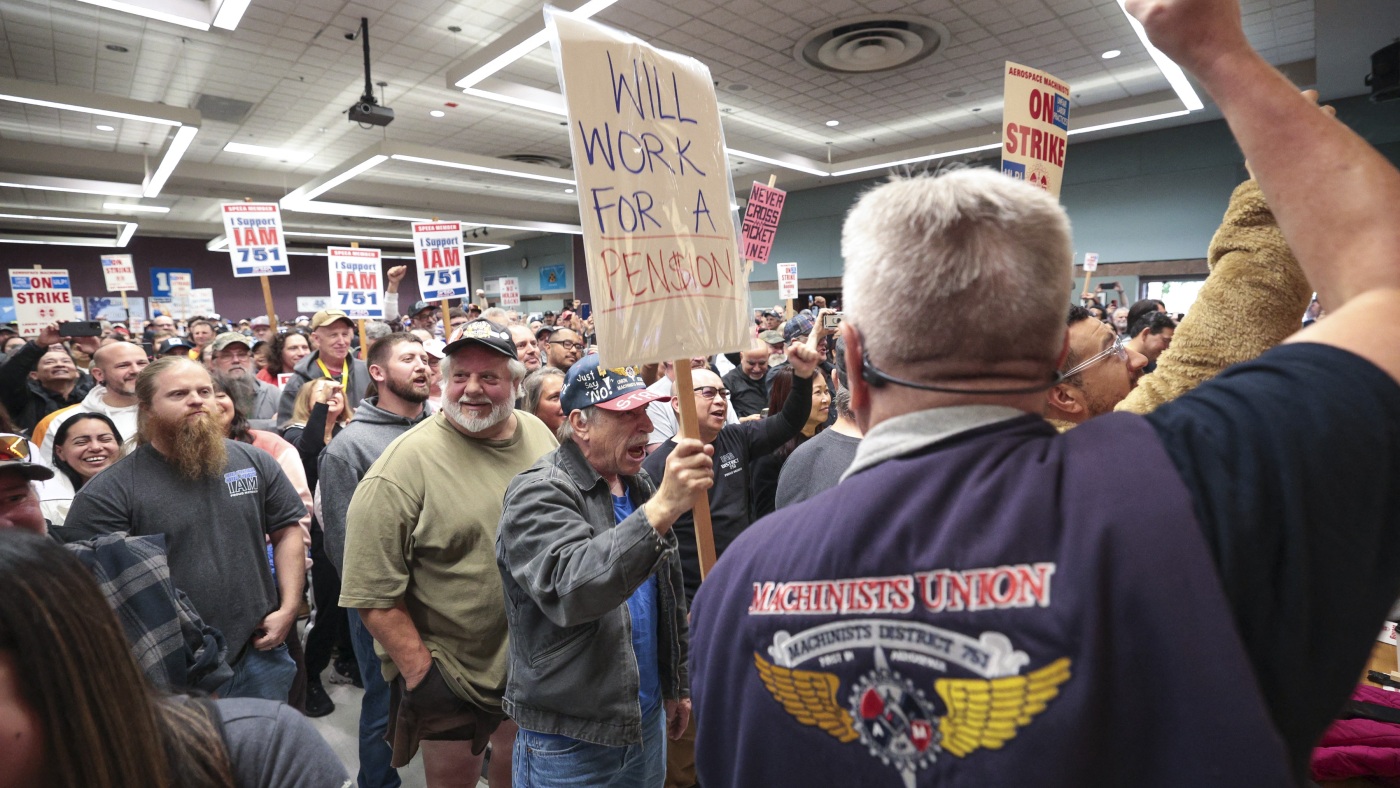
Terry Muriekes (center), a tool-storage worker at Boeing’s factory in Everett, Wash., for 38 years, holds a sign during a strike rally for the International Association of Machinists and Aerospace Workers (IAM) at a union hall in Seattle on Tuesday.
Jason Redmond/AFP via Getty Images
hide caption
toggle caption
Jason Redmond/AFP via Getty Images
Leaders of Boeing’s machinists union announced Saturday that they have reached a “negotiated proposal” for a new contract with the aerospace giant — after a grueling five-week strike that has battered both sides.
The latest proposal includes a 35% general wage increase over four years — bringing it closer to the union’s original ask for a 40% increase during the same period. Boeing’s previous offer was a 25% wage increase over the life of the contract.
The new deal, however, does not reinstate defined pension benefits, which was taken away from union members a decade ago and one of the union’s most ambitious demands.
But the proposed contract does enhance the company’s 401(k) match, increasing it to 100% from the previous offer of 75%. It also includes a one-time $5,000 contribution to each member’s 401(k) and a one-time bonus of $7,000 should workers ratify the proposal.
The vote to approve or reject the new proposed contract is on Wednesday.
“The future of this contract is in your hands. Thank you for your continued input and support throughout this process,” said the leaders of the International Association of Machinists Districts 751 and W24 in a letter to its members.
The IAM negotiating committee also thanked Acting U.S. Labor Secretary Julie Su, who reportedly flew to Seattle to help facilitate negotiations.
Boeing spokesperson Bobbie Egan said, “We look forward to our employees voting on the negotiated proposal.”
The strike began on Sept. 13, a few days after a vast majority of Boeing’s some 33,000 union members rejected a previous deal reached by the plane-maker and the union’s negotiating team.
The walkout halted airplane production at key plants and further delayed the debut of a new plane, the 777x, from 2025 to 2026. Anderson Economic Group, a consulting firm that evaluates financial damage, estimated that Boeing and its suppliers lost over $100 million after just about one week of the strike.
Last week, Boeing CEO Kelly Ortberg announced the company will cut 17,000 jobs — about 10% of its global workforce — in the coming months as a result of production delays and the company’s troubling finances.


